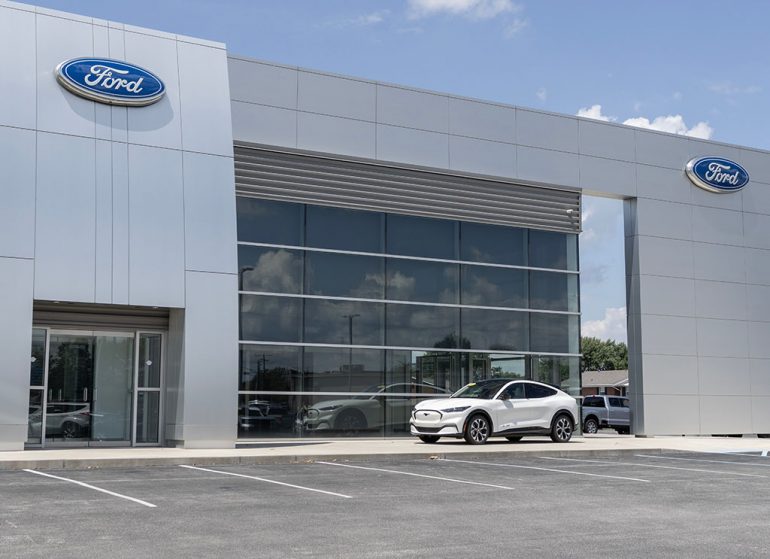
Amidst the evolving landscape of the automotive industry, a challenge emerges for Ford as only half of its dealerships in the United States are willing to embrace the sale of electric vehicles (EVs). According to reports, approximately 1,550 out of nearly 3,000 Ford dealerships have opted out of the substantial investments required to participate in the electric vehicle market, notably with models such as the F-150 Lightning and Mustang Mach-E.
The hesitancy among dealers can be attributed to the significant financial commitments mandated by Ford’s certification program, potentially exceeding $1 million. This program necessitates dealerships to undergo training and install DC fast-chargers, transforming each sales lot into a charging location for EV owners. Some dealers express dissatisfaction with these requirements, highlighting the strain they impose on both financial resources and operational logistics.
Also, don’t forget that you can get discounted new car pricing with a free quote through qualified local dealer partners.
Notably, as the demand for battery-powered cars experiences a slowdown, exacerbated by persistent high prices, dealers appear more inclined to stick with conventional combustion engines and hybrids. The preference for traditional vehicles is further underscored by their popularity, as consumers cautiously explore ways to mitigate fuel costs without fully committing to electric alternatives.
Ford’s approach to fostering EV adoption has faced legal challenges, with some dealers contending that the certification program violates state laws. The automaker, currently embroiled in lawsuits, plans to appeal these decisions. This legal friction adds to the strain on Ford’s relationship with its dealers, as evidenced by the recent survey where the company ranked last in dealers’ trust in their franchises. A staggering 46% of Ford dealers expressed “no trust” in the franchise, signaling a strained partnership.
The challenges are not limited to dealer reluctance, as Ford grapples with production setbacks and a sales slowdown for its electric F-150 Lightning. The company’s decision to scale back production and postpone a $12 billion investment in EV manufacturing reflects the broader industry challenges and the need for strategic recalibration.
Source: Business Insider